 2007 Nissan Sentra VI Dimensions, Size & Specs
2007 Nissan Sentra VI Dimensions, Size & SpecsMeasurements of the 2007 Nissan Sentra VI, engineered for optimal performance and comfort
| Dimensions | |
|---|---|
| Length: | 4567 mm179.8 in15.0 ft |
| Width: | 1790 mm70.5 in5.9 ft |
| Height: | 1512 mm59.5 in5.0 ft |
| Trunk Capacity (Max): | 371 liter13.1 cu ft |
| Weight Specifications | |
| Curb Weight: | 1295 kg2855 lbs |
| Maximal permitted Weight: | 1745 kg3847 lbs |
| Tire Specifications | |
| Tire Size: |
|
The Nissan Sentra VI, produced from 2006 to 2012 and represented by the 2007 model year, is a compact sedan renowned for blending practicality with a comfortable driving experience. Measuring 4567 mm (179.8 inches) in length, 1790 mm (70.5 inches) in width, and 1512 mm (59.5 inches) in height, the Sentra VI offers a balanced size that suits urban as well as suburban driving environments. Weighing 1295 kg (2856 lbs) curb weight and boasting a maximum weight capacity of 1745 kg (3848 lbs), this generation provides a robust chassis capable of accommodating passengers and cargo efficiently.
Inside, the sedan’s versatility is highlighted by a rear luggage capacity of 371 liters (13.1 cubic feet) when the rear seats are folded down, a feature that enhances the practicality of the cabin for carrying larger loads or luggage on trips. The Nissan Sentra VI rides on a tire size of 205/60R16, which supports a stable and smooth driving performance.
This generation of the Sentra continues Nissan's tradition of delivering reliable, economical cars with a sporty edge, making it a popular choice in the compact sedan segment. The size dimensions indicate an easy-to-maneuver profile while ensuring sufficient interior space for passengers and cargo alike. Whether for daily commutes or longer journeys, the Sentra VI balances compactness with functionality and comfort.
Discover the standout features that make the 2007 Nissan Sentra VI a leader in its class
Have a question? Please check our knowledgebase first.
The Nissan Sentra VI, produced from 2006 to 2012, has the following exterior dimensions: a length of 4567 mm (179.8 inches), a width of 1790 mm (70.5 inches), and a height of 1512 mm (59.5 inches). These measurements give the Sentra VI a balanced size for a compact sedan, offering good interior space without being overly large for urban driving and parking.
The curb weight of the 2007 Nissan Sentra VI is approximately 1295 kg (2856 lbs). This weight reflects the vehicle's standard equipment and fluids without passengers or cargo. The maximum weight, which includes passengers, cargo, and the vehicle, is rated at 1745 kg (3847 lbs). This capacity highlights the car's efficient design in balancing weight, contributing to its fuel economy and handling characteristics.
The Nissan Sentra VI offers a luggage capacity of 371 liters (about 13.1 cubic feet) when the rear seats are folded down. This cargo space is generous for a compact sedan, allowing owners to carry larger items or more luggage when needed, enhancing its practicality for everyday use and road trips.
The Nissan Sentra VI from 2007 comes equipped with tire sizes of 205/60R16. These 16-inch tires provide a good balance between ride comfort, handling, and fuel efficiency. The tire width of 205 mm offers sufficient grip for confident driving while maintaining a smooth ride, suitable for both city and highway conditions.
Yes, the Nissan Sentra VI is generally suitable for parking in a standard residential garage. Typical single-car garages range around 2.4 to 3 meters (7.9 to 9.8 feet) in width and 4.8 to 6 meters (15.7 to 19.7 feet) in length. Given the Sentra VI's length of 4567 mm (179.8 inches) and width of 1790 mm (70.5 inches), it comfortably fits within these dimensions with sufficient space to maneuver and open doors.
Compared to the previous generation, Sentra V, the Sentra VI grew slightly in size to enhance interior comfort and road presence. The Sentra VI has a length of 4567 mm (179.8 inches) and a width of 1790 mm (70.5 inches) — dimensions larger than the Sentra V, which measured approximately 4485 mm (176.6 inches) in length and 1720 mm (67.7 inches) in width. This increase allowed for more cabin space, improved trunk capacity, and better overall refinement while maintaining its compact sedan classification.
In the compact sedan segment during 2006-2012, the Nissan Sentra VI was competitively sized. Its length of 4567 mm (179.8 inches) and width of 1790 mm (70.5 inches) were similar to rivals like the Toyota Corolla and Honda Civic, which typically ranged from 4500 to 4600 mm in length and about 1750 to 1790 mm in width. The Sentra VI offered a comfortable interior with ample legroom and trunk space, often matching or exceeding competitors in cargo capacity. Its design balanced practicality with a slightly more modern and aerodynamic profile compared to some rivals.
The Nissan Sentra VI, with a curb weight of 1295 kg (2856 lbs) and compact dimensions, offers nimble and responsive handling, especially well-suited for urban driving and highway cruising. The moderate size provides good maneuverability in traffic and easy parking, while the balanced weight contributes to stability and smooth ride quality. Its size and tire setup make it reliable in various road conditions, with a comfortable cabin ride for passengers.
The Nissan Sentra VI introduced several improvements over prior models, including enhanced safety features like side-impact airbags and electronic stability control in certain trims. The design incorporated a more aerodynamic body for better fuel efficiency, and there were upgrades to interior materials and technology, such as improved audio systems and optional navigation. The Sentra VI also offered improved suspension tuning, providing a more refined ride. Engine options were designed for better fuel economy without sacrificing performance, making it a practical daily driver.
When considering modifications for the Nissan Sentra VI, its dimensions should be kept in mind to maintain safety and performance. The width of 1790 mm (70.5 inches) limits the size of aftermarket wheel and tire packages to maintain proper clearance within the wheel arches and avoid rubbing. Suspension upgrades must consider the car’s ride height of 1512 mm (59.5 inches) to preserve ground clearance and handling balance. Additionally, due to the car’s overall compact size, any external modifications such as body kits should be proportionate to avoid compromising aerodynamics or parking practicality.
Discover similar sized cars.

| Production: | 1985-2010 |
|---|---|
| Model Year: | 1985 |
| Length: | 4270-4502 mm168.1-177.2 in |
| Width: | 1615-1735 mm63.6-68.3 in |
| Height: | 1420-1462 mm55.9-57.6 in |
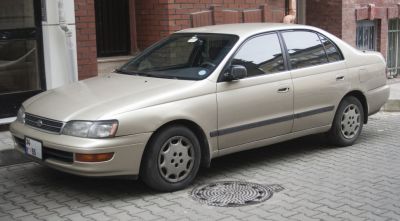
| Production: | 1992-1996 |
|---|---|
| Model Year: | 1992 |
| Length: | 4500-4520 mm177.2-178.0 in |
| Width: | 1695-1740 mm66.7-68.5 in |
| Height: | 1325-1425 mm52.2-56.1 in |
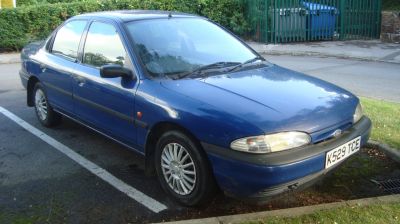
| Production: | 1993-1996 |
|---|---|
| Model Year: | 1993 |
| Length: | 4481 mm176.4 in |
| Width: | 1750 mm68.9 in |
| Height: | 1430 mm56.3 in |
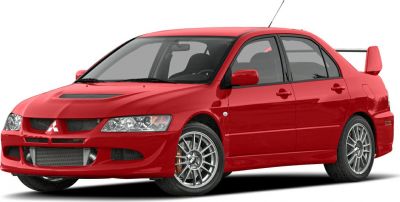
| Production: | 2003-2005 |
|---|---|
| Model Year: | 2003 |
| Length: | 4490 mm176.8 in |
| Width: | 1770 mm69.7 in |
| Height: | 1450 mm57.1 in |
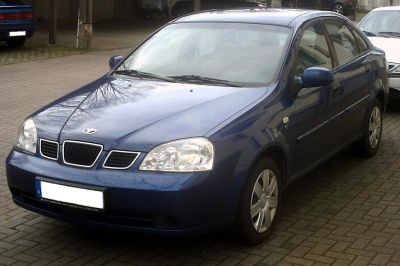
| Production: | 2003-2005 |
|---|---|
| Model Year: | 2003 |
| Length: | 4500 mm177.2 in |
| Width: | 1725 mm67.9 in |
| Height: | 1445 mm56.9 in |
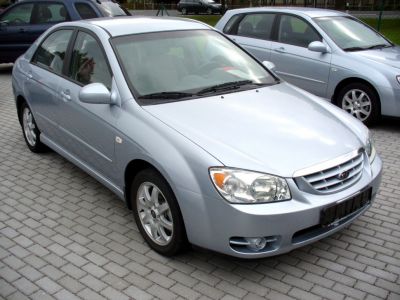
| Production: | 2004-2006 |
|---|---|
| Model Year: | 2004 |
| Length: | 4480 mm176.4 in |
| Width: | 1735 mm68.3 in |
| Height: | 1470 mm57.9 in |
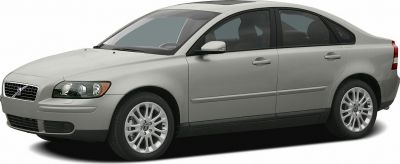
| Production: | 2004-2007 |
|---|---|
| Model Year: | 2004 |
| Length: | 4468-4476 mm175.9-176.2 in |
| Width: | 1770 mm69.7 in |
| Height: | 1454 mm57.2 in |
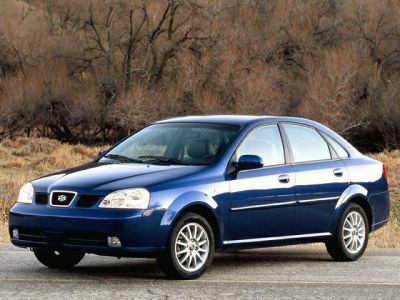
| Production: | 2003-2008 |
|---|---|
| Model Year: | 2004 |
| Length: | 4500 mm177.2 in |
| Width: | 1725 mm67.9 in |
| Height: | 1445 mm56.9 in |
